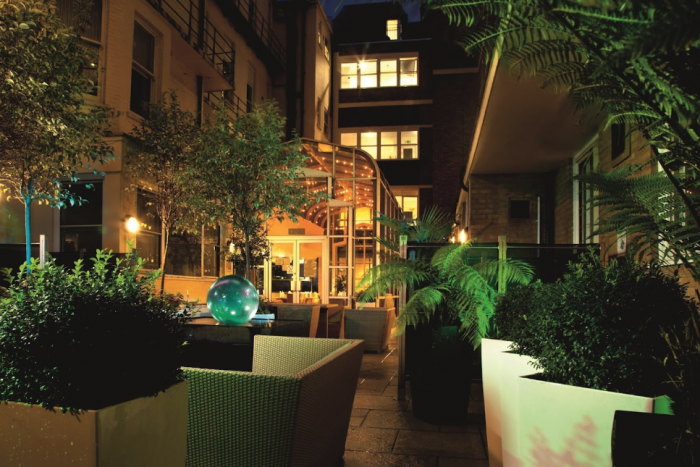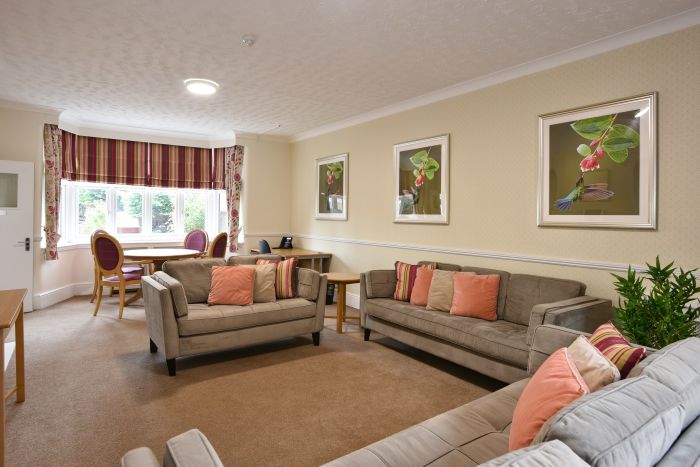London, like many other cosmopolitan areas, is full of diversity and culture. The many languages, ethnicities, and nationalities found here lend the city a unique and lively feel. History seeps from every cobblestone corner, and bright red double-decker buses whiz past famous landmarks like Big Ben and Westminster Abbey.
While a busy city may sound counterintuitive to recovery—people often equate healing with the quiet countryside—it’s still possible to find serenity in this metropolis. Countless parks speckle the city and serve as sanctuaries amidst the hustle and bustle. And luxury rehab centers in London provide necessary pockets of peace. While inside, you might completely forget that the busy city is right outside the front door.
There are several benefits to attending private rehab in London. At some facilities, you’ll come across novel techniques, like TMS and Alpha-Stim therapy. You’ll experience a relatively mild climate that stays relatively warm all year round. And most importantly, you’ll have rapid access to high-quality care, instead of waiting for a spot in an NHS facility.
Should You Opt for Self-Pay?
All UK citizens are eligible for free addiction and mental health treatment. However, getting government funding to attend rehab1 can be complex. This process is often lengthy, and you’ll have to attend the first available facility. This likely won’t be the rehab of your choice.
By choosing to self-fund treatment, you’ll get to choose from a variety of options. There’s a good chance this means enrolling in your preferred center. Attending a private rehab streamlines your admission process. You’ll get faster access to care—and find safety that much sooner.
Some luxury facilities offer unique treatment options that NHS clinics don’t. By opting to self-pay, you can choose a center with innovative care methods that fit your unique needs.
Cutting-Edge Treatment Techniques
London is home to a number of universities, hospitals, and research centers. As these institutions study new treatment methods, rehab centers may add them to their list of services. In London, this means that clients can try novel therapies for treatment-resistant conditions, like Alpha-Stim therapy and esketamine.
Transcranial Magnetic Stimulation (TMS)
TMS is a non-invasive treatment that aids in relief from addiction, depression, anxiety, PTSD, and bipolar disorder. This procedure uses magnetic pulses that stimulate or suppress areas of the brain. While there are different kinds of TMS, repetitive TMS (rTMS) is one of the most popular. In rTMS, repeating pulses are applied to specific places in your brain that correlate to your mental health condition.
The rTMS Centre specializes in this treatment. Clients can even see how rTMS works2 in person before committing to sessions. While some people experience side effects, they’re usually minor.
Alpha-Stim Therapy
In Alpha-Stim therapy,3 clients use a handheld device to send microcurrents to their brain. While this technique is especially effective for people experiencing PTSD, anxiety, depression, and insomnia, many others can still benefit from it. At The Soke, clients can utilize this treatment in relaxation pods after a talk therapy session.
Esketamine
For some clients, severe depressive symptoms remain despite medication and therapy. This is treatment-resistant depression. Fortunately, there are plenty of alternative options available—one of which is esketamine, a version of ketamine available in nasal spray form.4 When used in combination with medication, this prescription nasal spray is more effective than antidepressants alone.
Nightingale Hospital prescribes this spray to both outpatient and inpatient clients. After receiving your diagnosis, you’ll work with a health professional to determine your exact dosage. A psychiatrist will help clients administer this alternative depression treatment5 in 2 phases:
- an induction phase, in which clients use the spray twice per week for one month
- a maintenance phase, where treatment frequency lessens to once per week or every other week
However, clients may experience side effects such as dizziness, headaches, nausea, or vertigo. It’s also important to note that certain conditions make you ineligible for this medication. If you’re considering this esketamine in rehab, you’ll discuss your health history with your treatment team to determine if it could work for you.
Electroconvulsive Therapy (ECT)
ECT also treats clients with treatment-resistant depression (TRD).6 During this process, you will be under general anesthesia while electric currents trigger a small seizure in your brain. This procedure can alter your brain chemistry, which may help alleviate depressive symptoms. While this might sound intimidating, experts agree that ECT is safe for most people. According to the National Library of Medicine, “ECT is a relatively safe7 and low-risk procedure.”
At Nightingale Hospital, medical professionals will decide whether ECT is a good fit for you. If it is, you’ll have access to this treatment at 2 different hospitals: St. Charles Hospital, Ladbroke Grove, and Northwick Park Hospital, Harrow. A private nurse escort will accompany you to and from each location to make your journey that much more comfortable.

Unique Treatments for Your Specific Needs
Luxury rehabs in London cater to a varied group of people. And because London is one of the most diverse cities in the UK8—if not the world—health professionals are used to accommodating many different needs. Each center has their own unique specialties. It’s possible that one of them will fit your personal preferences.
Treatment for Clients With Eating Disorders
Everyone’s relationship to food is different. And if you have an eating disorder, it might be a little more complicated. For example, you might restrict your eating habits or view food as an emotional escape. Choosing a rehab facility that specializes in eating disorder treatment is crucial. These centers understand how to help you create healthy eating habits so that you can heal from the inside out.
Clients with eating disorders will find a supportive place to heal at Wimbledon Park Clinic This facility specializes in conditions like anorexia nervosa, bulimia nervosa, binge eating disorder (BED), and other specified feeding or eating disorders (OSFED).
Wimbledon Park Clinic has both traditional talk therapies and eating disorder-specific programs. These include body image therapy, nutrition classes, and exposure therapy. During exposure sessions, therapists slowly introduce food-related activities. For example, clients may shop for food, create nutritionally rich recipes, or order a meal in a restaurant under the guidance of specialized staff. This allows them to practice challenging situations they’ll face in real life with professional support.

Flexible Attendance Options: Outpatient and Stepped Care
Responsibilities at home can make outpatient care your best option. For example, you may have children or a full-time job—or both. Some rehab facilities have intensive outpatient programs (IOPs) to fill this need. An outpatient program requires you to attend rehab during the day, but allows you to sleep in your home at night. Some have flexible schedules that clients adjust to fit their needs.
Clients at Schoen Clinic Chelsea can opt for partial or full-day outpatient care. Their stepped care model allows you to complete treatment at your own pace.9 With stepped care,10 clients move through rehab in “steps.” This means they start with the least intensive, most cost effective methods, such as group therapy. From there, they work their way up to more specialized and expensive care, like individual therapy and medication. Specialists will evaluate your progress, and determine when you’re ready to move to the next “step.” This creates a more flexible treatment plan, and lets you attend rehab in a way that works best for you.
Single-Client Treatment
Some clients prefer 1-on-1 care, in which they’re the only person in treatment at the rehab center. A team of health professionals will focus on you and your family—and no one else. Because there are no other clients around, you only take part in individual therapy. These highly confidential environments allow for complete anonymity and are perfect for high-profile clients.
At Addcounsel, you’ll have the ability to personalize both your treatment plans and your residence. You’re able to choose the accommodation that best suits you. Treatment is flexible. You’ll work with your personal team to customize everything from your daily schedule to activities. And if in-person therapy doesn’t fit your needs, you can join an online program instead. Addcounsel even has in-home services—meaning their team will give you 24-hour care in your own home. This allows you to feel as comfortable as possible during your recovery journey.

Tailored Rehab for Arabic Communities
London has a thriving British-Arab community. According to a 2011 census, the largest population of British Arabs in England11 is in London. Because of this, Addcounsel curated a rehab service for Arabs.12 Their team of Arabic-speaking specialists incorporate their understanding of cultural and religious nuances into treatment. This will help you feel more at ease during your recovery process.
Recovery in London’s Multicultural Atmosphere
With about 9 million people, London is the biggest city in the UK. It’s become an international hub of people from all over the world. These worldly influences reveal themselves in the city’s rich culture.
London’s many museums, movie theaters, and art galleries provide plenty of opportunities for unique cultural experiences. Some rehab centers take clients on excursions to explore the local area. For example, PROMIS London offers outings to museums, shopping areas and cinemas.
Some rehabs even bring the arts into the treatment experience.
Let London’s Arts Inspire Your Creativity
London emphasizes the arts, and rehab is no exception. A number of treatment centers offer therapies that encourage clients to get creative. That’s because the process of making art can be highly cathartic for those in addiction treatment. Creativity is good for your mental health:13 studies show that engaging in imaginative activities reduces stress,13 decreases anxiety, and helps you process emotions. Nightingale Hospital capitalizes on the healing power of the arts through several types of creative therapy:14
- dance therapy, in which clients use movement to process and explore emotions
- art therapy, which can include painting, photography, or sculpting
- drama therapy,15 which encourages clients to use action to move past traumatic events or emotions
- music therapy, where clients play or listen to music to better understand their feelings
These therapies allow you to express yourself and work through difficult experiences in a safe space. And who knows—you may even find a new hobby in the process.
Care Close to the City
If you want to stay close to London but would prefer a quieter setting, there are several rehab centers located just outside of the city. For example, you’ll find The Cottage in the Surrey countryside, just under an hour away. Because of its secluded location, clients enjoy a truly private experience—the residence is even hidden from public view. And because of the proximity to nature, this center has plenty of activities that require a natural setting, like horseback riding and fly fishing.

Remember that there’s no right or wrong place to heal, just like there’s no right or wrong way to approach recovery. You get to choose where to begin your journey, whether that’s in the busy capital or the calmer countryside—there are plenty of luxury rehabs in the UK in quieter locations. Regardless of where you go, the weather in and near London will be similar.
London’s Mild Year-Round Climate
The city’s southeast location means London has a relatively temperate climate16—one of the mildest in the UK. The crisp winters boast an average temperature of 42 °F (5.5 °C) in January. The summers are slightly warmer, with daytime temperatures averaging 65 °F (18 °C) in July.
And contrary to popular belief, the sun does shine. Statistics declare sunshine about 5 days out of 6, although it can be brief. While rain is not uncommon (it’s wet about 165 days of the year), London sees plenty of dry days too. And they’re distributed fairly evenly—it rains equally throughout each season. Sometimes this turns to snow in the winter, but it usually melts quickly.
Overall, London’s weather is quite moderate. It’s much colder up north; the climate in the southern portion of England is toasty in comparison.
The weather isn’t the only thing that’s great about London’s location. It’s also a travel mecca, making it much easier to reach your final destination with ease.
6 International Airports Make Arriving at Rehab Simple
With more international airports than any other city in the world, flying to London17 is easy. Heathrow and London Gatwick are the 2 busiest airports, and you’ll likely fly into one of them if you’re arriving from outside of the UK. The United Kingdom has over 40 airports,18 which also makes it easy to come from a nearby area.
Some rehab facilities organize an airport pickup service for their clients. While London has an extensive public transportation system, navigating it on your own is often overwhelming. Contact your center’s admission team to coordinate your arrival so you’ll begin treatment stress-free.
Rehab in London is Just a Call Away
Whether you already live in the city or want to take advantage of easy access to this well-appointed capital, London is a convenient location to start treatment. Because it’s so well connected to the rest of the world, it’s easy to catch a flight here from almost anywhere. And because it’s such an international city, people of all different backgrounds have a better chance of finding the culturally competent care they need.
See our curated list of luxury rehabs in London to discover more cutting-edge treatment methods, view self-pay costs, and get prompt access to life-changing care.





